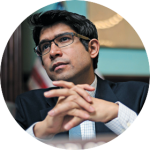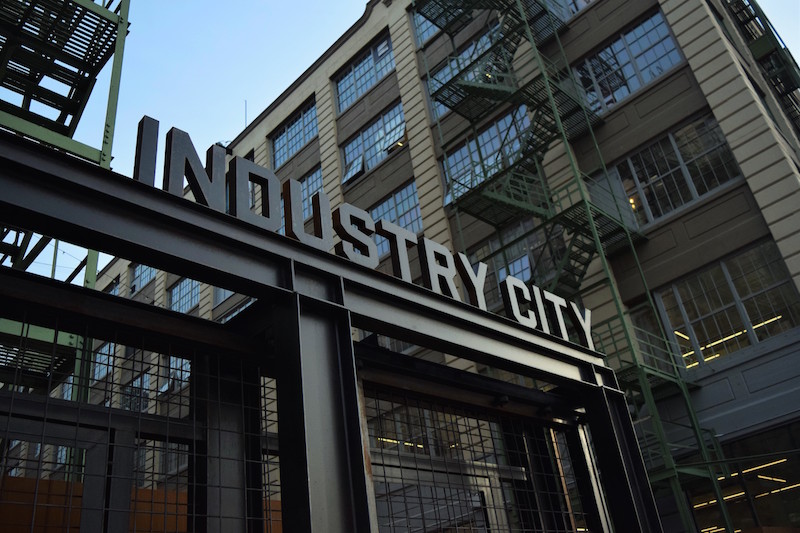The city and borough’s economic civic leaders are worrying out loud that Sunset Park could become a case of the failed Amazon deal take two, costing the working-class neighborhood thousands of local jobs as the city struggles under a crippling crisis on several fronts.
That after City Councilmember Carlos Menchaca (D-Sunset Park, Red Hook), voicing terms seemingly out of the Democratic Socialists of America (DSA) playbook, said he strongly opposes the Industry City rezoning plan for the Sunset Park waterfront and will vote “no” if the plan comes before the city council.

“It is clear to me that the displacement and gentrification our city is combatting today is a result of giving private developers free reign. We must learn from our mistakes and deliver what New Yorkers really need: stable housing, access to affordable and nutritious food, guaranteed healthcare, and good-paying, family-sustaining jobs,” said Menchaca in his statement shared on social media that he will oppose the application on the Industry City rezoning plan.
“The Mayor, and some of my colleagues in the Council, are already using the pro-corporate playbook for economic recovery to generate jobs and wealth. This is a familiar and flawed strategy used after the 9/11 attacks and the Great Recession. We must not let corporate interests develop our way out of this crisis.”
Established in 2013 on the long-abandoned Sunset Park waterfront, Industry City is the city’s largest privately-owned industrial complex comprising 16-buildings. It currently houses hundreds of businesses including in light manufacturing, retail, technology and events employing more than 7,500 people and has invested more than $80 million on Brooklyn-based businesses.
In late October of last year, Industry City CEO Andrew Kimball and the Jamestown, Belvedere Capital, and Angelo, Gordon & Co.-owned campus put in a rezoning application to change part of the Southwest Brooklyn Industrial Business Zone to expand to accommodate up to 900,000 square feet of retail space, build two hotels totaling 275,000 square feet, use 600,000 square feet for academic classrooms, and develop up to 1.3 million square feet of additional commercial space.
The move came after Kimball verbally committed to Menchaca’s demands that virtually gutted Industry City’s proposed rezoning, which included nixing the hotels, reducing the amount of retail space, devoting space to a new manufacturing hub and a public technical high school, and put these commitments in a legally binding community benefits agreement (CBA).
However, Kimball said, when the rezoning application was put in that the details of the CBA and the final project plan would be hammered out in the city’s rezoning process known as the Uniform Land Use Review Procedure (ULURP).
Menchaca’s decision carries a lot of weight as Industry City is in his district and the City Council has traditionally, but not always followed the advice of the local city council member in allowing rezonings.
It also comes as the COVID pandemic has left the city with a roughly $9 billion budget deficit, a city unemployment rate of over 20%, a growing number of businesses permanently closed, residents fleeing the state and a sharp uptick in crime.
“It is abundantly clear that New York City is being challenged by the combining impacts of the greatest crises the city has ever faced: a pandemic that the city was not prepared to fight; a staggering loss of jobs leaving by some estimates more than one in five New Yorkers without work; and a revenue shortfall that will cripple government’s ability to fully provide essential services for decades. Often, in times of great crisis, great leaders emerge. We are hoping that will be the case in our effort to work with city leaders to fully implement a plan to create 20,000 jobs and generate hundreds of millions of dollars in taxes,” said Industry City Spokesperson Lee Silberstein.
Brooklyn Chamber of Commerce President and CEO Randy Peers, who is also the former chair of Community Board 7 in Sunset Park, said after four months of economic devastation, the borough urgently needs forward-thinking projects that will stimulate economic development and create jobs and opportunities in local neighborhoods, especially in communities of color.
“Turning our backs on the 20,000 new jobs, added workforce development programs and more community-focused investments is near sighted and irresponsible leadership,” said Peers.
Carlo Scissura, president of the NY Building Congress, the former head of the Brooklyn Chamber of Commerce and a resident living in Bay Ridge, which is adjacent to Sunset Park, also expressed dismay with Menchaca’s decision.
“Since Industry City first proposed its plan for 20,000 jobs several years ago, it has engaged in good faith with decision-makers and community stakeholders to create opportunity in Sunset Park – agreeing to preserve space for manufacturing, limit the amount of retail, continue its extensive job training and negotiate a binding community benefits agreement. Now, with one in five New Yorkers out of work, the question we all must consider is: how can we reject the 20,000 jobs this project creates?” said Scissura.
“After years of community push back, Council Member Menchaca finally picked a side! We will hold him to his word and expect him to follow through on voting down Industry City’s plan to replace Brooklyn’s largest industrial waterfront with inessential retail and expanded corporate office space should it come for a vote before the City Council,” said Antoinette Martinez, an organizer with Protect Sunset Park
“Instead of centering our waterfront’s future around a private deal with a few corporate landlords, we need Menchaca and New York’s leaders to center a public plan that puts the frontline communities hit hardest by the coronavirus crisis first,” she added.
Menchaca’s decision comes as the city readies to restart the ULURP process that was paused during the pandemic.






